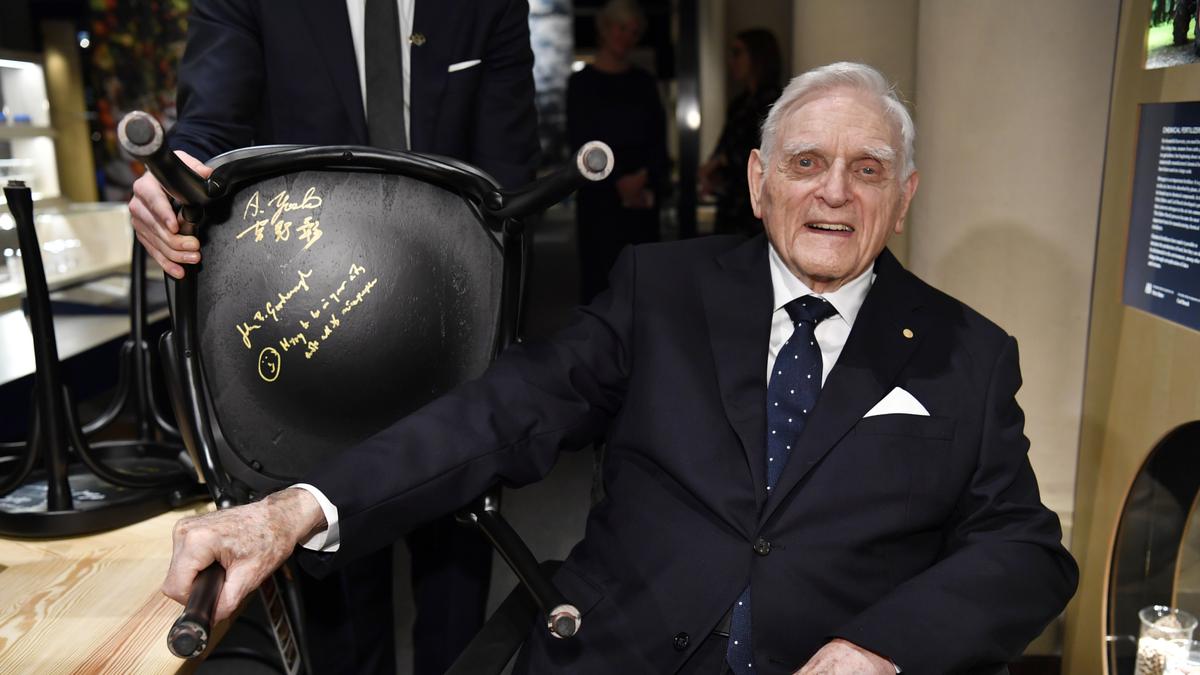
John Goodenough, a Nobel Prize-winning co-creator of the revolutionary lithium battery, dies at 100
The Hindu
John Goodenough, who shared the 2019 Nobel Prize in chemistry for his work developing the lithium-ion battery that transformed technology with rechargeable power for devices ranging from cellphones, computers, and pacemakers to electric cars, has died at 100, the University of Texas announced on June 26.
John Goodenough, who shared the 2019 Nobel Prize in chemistry for his work developing the lithium-ion battery that transformed technology with rechargeable power for devices ranging from cellphones, computers, and pacemakers to electric cars, has died at 100, the University of Texas announced on June 26.
Goodenough died Sunday at an assisted living facility in Austin, the university announced. No cause of death was given. Goodenough was a faculty member at Texas for nearly 40 years.
Goodenough was the oldest person to receive a Nobel Prize when he shared the award with British-born American scientist M. Stanley Whittingham and Japan's Akira Yoshino.
“Live to 97 and you can do anything,” Goodenough said when the Nobel was awarded, adding he was grateful he wasn't forced to retire at 65.
And while his name may not ring a bell to most, Goodenough's research helped unlock a revolution in technology now taken for granted in today's world of portable phones, tablets and just about anything else with a plug-in port for a recharge.
Lithium-ion batteries were the first truly portable and rechargeable batteries, and they took more than a decade to develop. Whittingham said in 2019 that he had no inkling that his work decades ago would have such a profound impact on the world.
“We thought it would be nice and help in a few things," Goodenough said, “but never dreamed it would revolutionize electronics and everything else.”

The 29th edition of the Conference of Parties (COP29), held at Baku in Azerbaijan, is arguably the most important of the United Nations’ climate conferences. It was supposed to conclude on November 22, after nearly 11 days of negotiations and the whole purpose was for the world to take a collective step forward in addressing rising carbon emissions.










